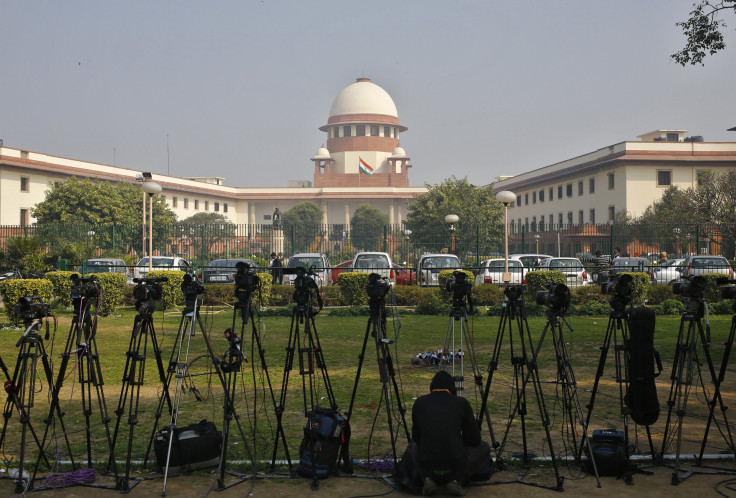India's Top Court Strikes Down Law On Appointment Of Judges, Rules In Favor Of 'Collegium' System

In a landmark judgment, India’s top court Friday struck down a law that sought to replace a two-decade old collegium system for the appointment of judges to state high courts and the country's supreme court.
The National Judicial Appointment Commission (NJAC) act, which was introduced in India’s parliament by the Narendra Modi-led government last August, had been criticized by sections of the judiciary as an attempt to increase government interference.
The Supreme Court, in its judgment, declared the law unconstitutional, reportedly stating that it violated the “basic structure” of the constitution. Additionally, the five-judge bench of the court also held that the system that existed before the act came into force last year was “operative” and should continue.
The NJAC act was meant to end the so-called collegium system, wherein five of the most senior supreme court judges decided who would be the next high court or supreme court judge. While critics of the collegium system termed it a symptom of “judicial anarchy” and argued that it granted judges untrammeled power, proponents have said it is essential to maintain the independence of the judiciary.
I am really surprised with this verdict: Union Law Minister Sadanand Gowda on SC's judgement on NJAC
— ANI (@ANI_news) October 16, 2015Under the NJAC act, a six-member commission, headed by the chief justice of India, would have replaced the collegium. Other members of the commission would have been India’s law minister, two senior Supreme Court judges and two “eminent persons” -- who would have been nominated by a committee consisting of the chief justice, and two politicians -- the prime minister and the leader of opposition in the lower house of the parliament.
The procedure for the appointment of these people had been a major bone of contention between those challenging the act and those defending it.
“Selection of lay persons who know nothing about the working of judiciary by a body with a majority of politicians militates against the purity of judicial standards, which is the cornerstone of judicial independence,” Rajeev Dhavan, a senior Indian lawyer, told the Times of India in May. “What on earth is their role in selection of judges?”
According to the 2104 Corruption Perceptions Index compiled by Transparency International -- which ranks countries and territories based on how corrupt their public sector is perceived to be -- India ranks 85 out of a list of 175 countries. And many fear that an increased role for government in the appointment of judges would taint the judiciary, which is perceived to be relatively untouched by the corruption scandals that have plagued the country's executive and legislative branches.
“Can there be independence of judiciary when the power of appointment of judges is vested with the executive, which is the largest litigant having vital interest in several issues pending adjudication before the judiciary?” Dhavan asked at the time.
© Copyright IBTimes 2024. All rights reserved.






















